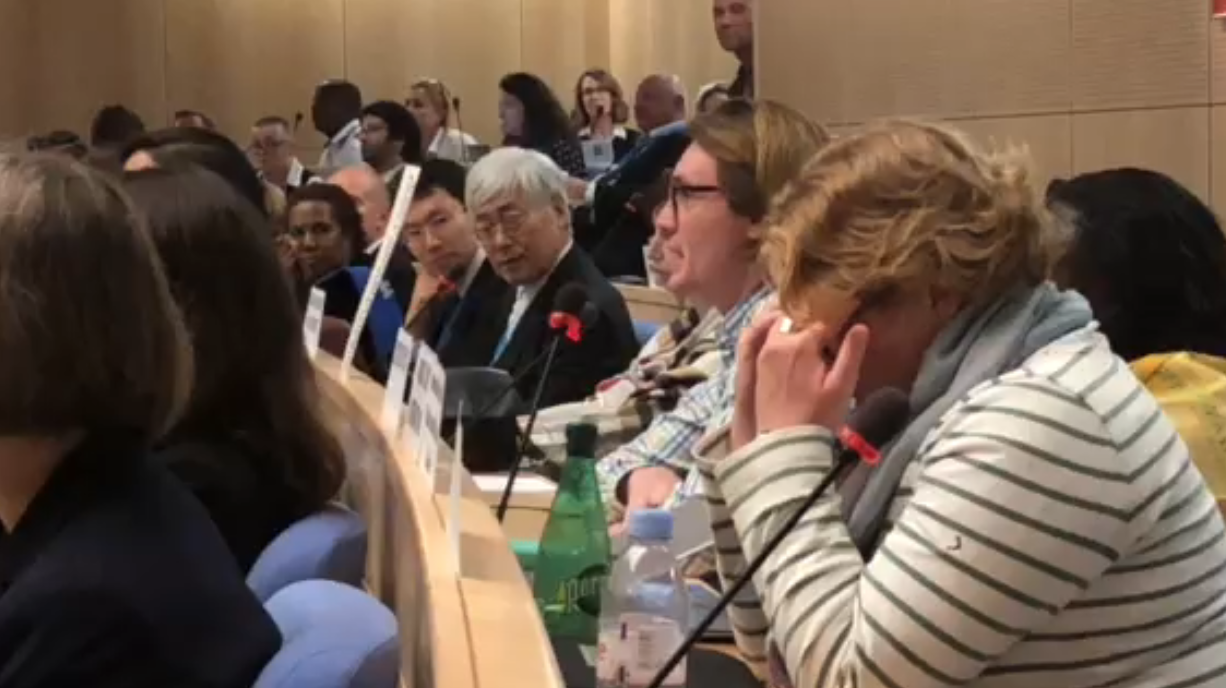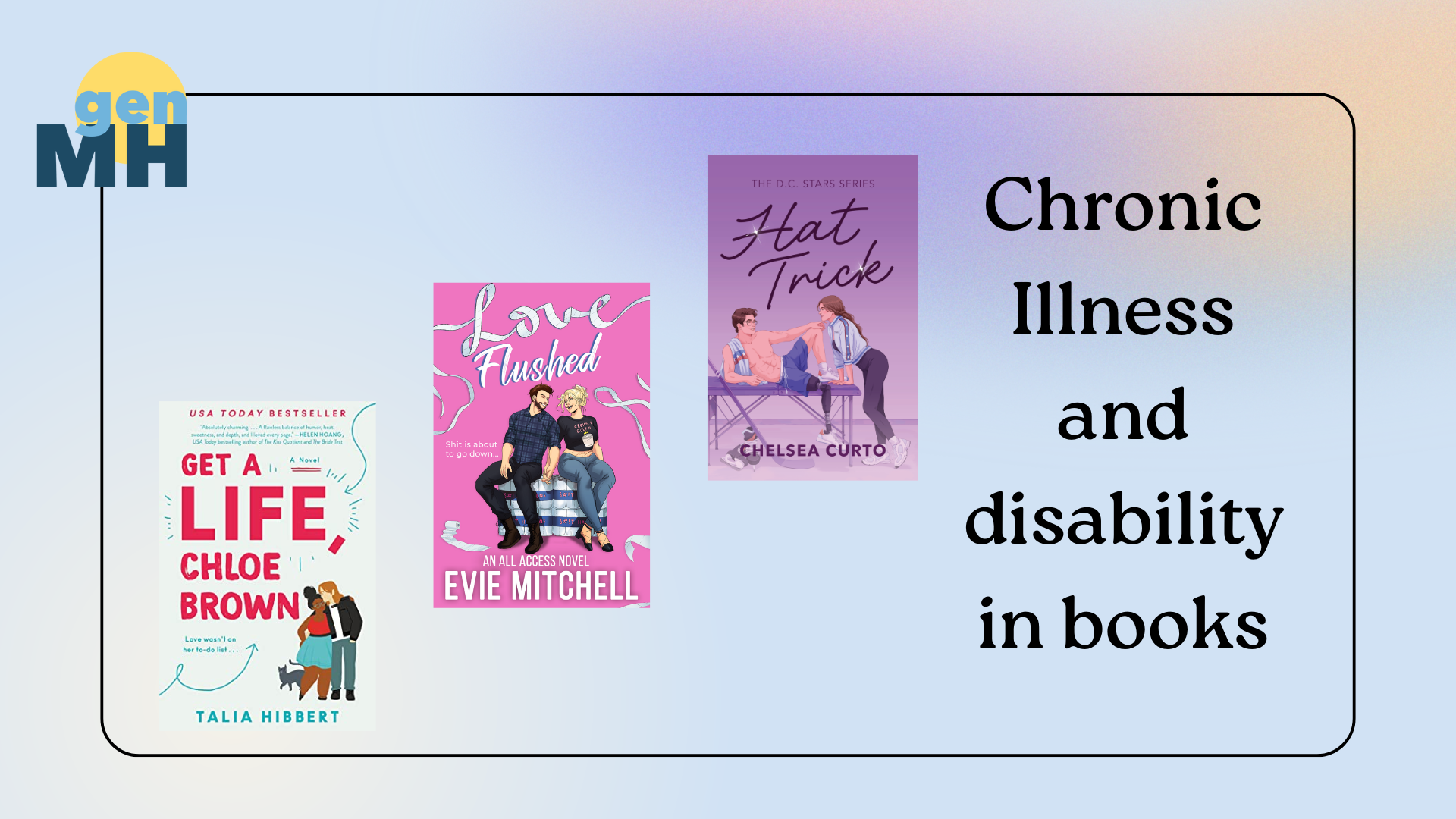Transforming personal distress into global human rights advocacy in mental health: my story
In 1990, I was born into a family with a long history of emotional distress from convict resettlement in England, to the potato famine in Ireland, and ending with both families converging and settling in Australia. In 1996, at the age of six, I was removed from my mother’s care and began living with a foster family. We were removed from my mother’s and father’s care proceeding my parent’s divorce, resulting in my single mother’s deteriorating maternal mental health. She expressed her desire to end her life with her three children including myself, alongside my father’s violence at the time, and an unstable family income with limited support from my grandparents.
In 1999, at age nine, I lost my mother to suicide. I still remember the day I was told by my foster carers that she passed away, of which I had four foster carers within the space of four years. We were kept back from school by our foster carers, who requested we play arts and crafts in the dining room. I knew something was immediately wrong as were we taken by the social worker every morning for the one-hour long drive to primary school. The social worker closed the sliding door facing the kitchen to speak with my foster carers, and I could sense, and almost knew what was going to be shared with me. My foster carers and the social worker, who was a younger English woman, expressed their sadness in that our mother had passed away. I do not recall the detail of what was communicated, but I do remember crying for hours, maybe even days, there was a part of me that was relieved for her, as the last time I saw her was in a psychiatric hospital where she told me how much she loved me and would miss me. I knew deep down this was her saying goodbye, and to this day I wish I had that moment with her again.
I reread child protection case notes some years later, which identified I was an over parent-ified child and quite resentful at my mother’s lack of presence. Through my hyper-vigilance of responding to the trauma I began to behave out of survival and safety, socially engineering leadership skills and qualities necessary to protect myself and my younger siblings who I viewed as my children. I cared for them alongside with my father and grew up in significant poverty due to a lack of income security from the government, and the immense task of being a single parent. My father did an amazing job, and I hold no resentment towards him as he has transformed his life and become a family carer peer worker in a psychiatric hospital. In addition, after my mother’s suicide, I lost all contact with my maternal grandparents, due to the shame that they expressed over losing a daughter to suicide. The complexity of this situation was confounded in the fact that they blamed my father for my mother’s death. We bear too much pain for their own complex grief, loss and trauma as they lost their daughter many years prior to her passing. My grandmother had told my mother she did not want children, and to this day I question the circumstances from a feminist perspective to understand and forgive her behaviour in contribution of my mother’s mental health issues prior to meeting my father. I even question my grandmother’s sexuality and desire for having children, having felt forced like many women to have children in the early seventies. This picture paints an intergenerational and intersectional story resulting in a childhood littered with abandonment, abuse, neglect, complex trauma and grief. No wonder we developed mental health ‘dis’orders, it appears to be a healthy adaptation to consistent adversity.
The grief, loss and trauma I experienced were two-fold, as my brother lives with ‘Schizophrenia’ as defined by psychiatry and my sister lives with ‘Bipolar Disorder’ and ‘Borderline Personality Disorder’ as defined by psychiatry. They are both beautiful, but sometimes their challenges overwhelm me, so I support them from a distance for self-care. Much of my adolescence and young adulthood involved advocating for their care, treatment and support with psychiatric hospitals and services, alongside other intersecting service systems that are broken, disjointed and uncommunicative. It appears intersectoral service systems such as housing and income security, are designed to entrench us in ‘dis’ability or diverse ability and disadvantage.
In 2020, I am living with what Psychiatry defines as ‘Bipolar Affective Disorder’ which has enabled transformative personal insight. I am a suicide survivor and almost took the path my mother had at a similar age. I thought I was going home to be with her. I now fear to live, I do not fear death. Severe and enduring mental distress often results in deep critical self-reflection, advanced empathy and spiritual enlightenment. I found myself through my adversity, I found my purpose, I found self-love, and I found out that I did not have to take the same path as my mother. At other times, my diagnosis caused distress for me and others. The medications adversely impacted weight gain, lethargy, tiredness and poor sexual libido, which are ironically all essential to gaining a sense of recovery. Then there were the hospitalisations. I have spent over six months of my life in and out of psychiatric hospitals and many more as a service user in the community accessing clinical community mental health services and psychosocial disability services. Although distressing and unpleasant, without the treatment I am sure I would not be alive. I view medication as training wheels on a bike and utilise them as needed when acutely distressed, where I know biomedical interventions are necessary. Through my diagnosis, I learned the importance of human connection and belonging, as this instils hope and purpose for living a meaningful life. Most of all through my lived experience I found my voice, I felt empowered and somewhat enraged by the system designed to address the genesis of distress – trauma – with an unfounded focus almost solely on the biomedical perspective. I thought this to be an epistemological injustice in how we privilege particular knowledge over others based on how effective we perceive objectivity to be in collecting social phenomena, which is a flawed hierarchy much like biomarkers in Psychiatry. Through my lived experience I developed leadership skills and a deep purpose characterized by a drive to be there for others in the pursuit of bettering humanity.
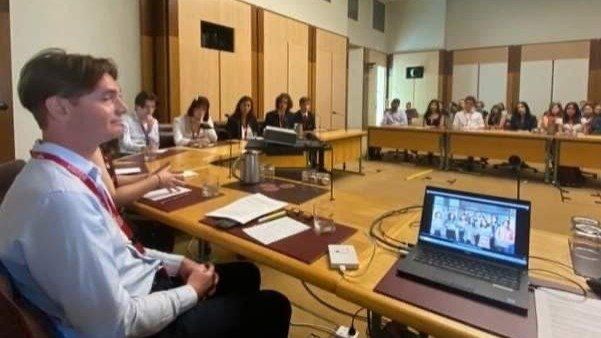
I applied this desire through study. Through my university studies, I enrolled in social work, as I was passionate about social justice and human rights. I graduated into forensic mental health supporting lived experience consultants for the forensic hospital and forensic community mental health service program. The consultants advocated for service users in a systemic advocacy role providing feedback to the executive and board who administered the forensic state-wide service. This work led to an interest in the lived experience profession and survivor movement, and the beginning of my passion for partnering alongside persons experiencing mental distress through my own journey.
The lived experience and/ or service user profession focuses on a critical sociological perspective in mental health, incorporating mad studies as the scientific knowledge base for our work. Its aims are focused on equity and justice and locate our distress in structural disadvantage and social determinants to health and wellbeing. Psychiatry is seen by most as an essential part of understanding distress. However, its focus and the power it holds is critiqued with a focus on social, cultural, spiritual, human rights and justice dimensions of aetiology and service delivery, which are presented as alternatives to psychiatry as a paradigm for practice. Partnering with others involves peer support, through empowerment and mutuality, and the sharing of story and personalized medicine to achieve change through equal relationships. This approach shifts away from expert and patient, and cultivates internal transformation through reclaiming a human being’s sense of power, hope, connection and identity which are often lost due to the impacts of distress and the iatrogenic adverse impacts of the mental health service system, societal stigma and discrimination. The pursuit of unpacking peer work as an emergent global mental health human rights profession has involved a deep desire to share my own story, but also to provide the conditions to make space for others to share theirs, particularly of intersectional disadvantage, and through this approach, we heal only personally, and also collectively.
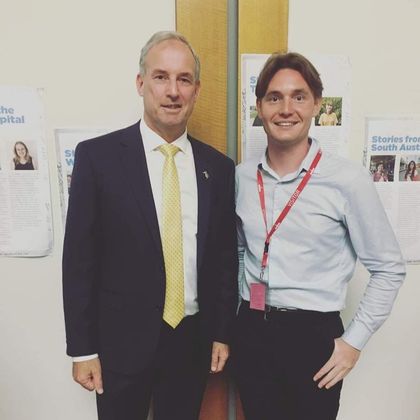
With Senator R. Colbeck, Liberal Party, Australia
My personal, professional and academic experiences aim to elevate the voices of persons experiencing distress. I often utilise my social work professional qualification to subversively enter spaces closed to peers, and then promote the lived experience professional agenda once the system is safe. I have presented at multiple international events including the annual World Health Organisation Mental Health (MH)Gap Forum in 2018, representing the Western Pacific Region on the Global Mental Health Peer Network and the inaugural Global Mental Health Ministerial Summit in London 2018. At various global mental health spaces, including conferences and advocacy collectives, I have contributed to a human rights and social justice perspective with a focus on involving lived experience persons in high-level decision making and recruiting lived experience trained professionals who articulate the critical sociological perspective from disability rights and justice movement discourse. I have been effective in influencing prominent global health ministers on the impact of inequality on population-level mental distress and general health outcomes. I currently represent the lived experience voice on the National Advisory Panel for the Australia Association of Social Workers encouraging critical sociology perspective and alliance with the peer workforce in Australian public mental health systems. I recently returned from Parliament House in Canberra, Australia, where I represented the youth mental health voice at the launch of the United Nations Youth Report presented by our Australian ambassador Kareem El-Ansari. I spoke to fifteen ministers and senators of parliament about the importance of focusing on structural determinants in politics such as equity, justice and poverty alleviation as central to solving a significant proportion of mental distress.
Presenting at the MH Gap Forum World Health Organisation in Geneva, Switzerland, September 2018.
Today, I am a Global Human Rights Activist in mental health. In addition, I am drawing on the survivor movement and professional academic discipline of mad studies incorporating a strong disability justice lens. I complete an International Diploma in Mental Health, Human Rights and Law at the Centre for Mental Health, Law and Policy at the Indian Law Society which was co-designed by the World Health Organisation for global mental health advocates, and am returning as an Associate Lecturer in global mental health peer work as a human rights discipline in late 2020. I am fortunate to have complete Project Returns two month Certified Peer Specialist training in Los Angeles, USA, where I interned with the Chief of Peer Services at LA County Mental Health Department, assisting in developing a Recovery Policy framework and peer workforce development. I aim to complete my current Juris Doctor in Law and my PhD unpacking lived experience, service user and peer work as the emergent human rights discipline in global mental health. I currently work as a mental health clinician at the Department of Veterans Affairs specialising in trauma, and lecture at Victoria University in the Bachelor of Social Work program encouraging emerging social workers to connect with their values, which emanate predominantly from intersectional lived experience. Alongside work endeavours, I volunteer with the Global Shapers as part of the World Economic Forum.
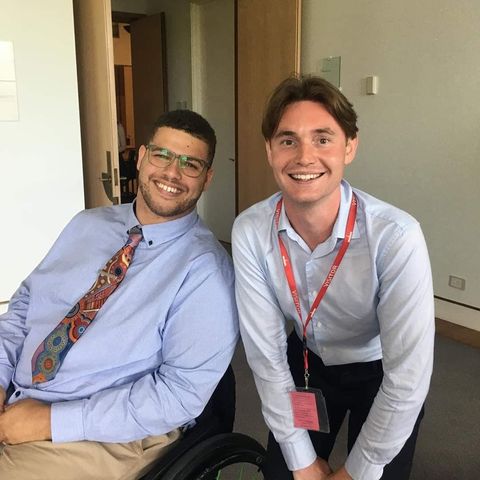
With Senator J. Steele, Green Party, Australia
I have found my purpose and strengths through survival, resilience and growth from complex grief, loss and trauma. My ‘illness’ and mental distress have been a neurological diverse gift from the universe, and most probably a gift from mother in spirit who I absolutely embody and live my life in the dedication of alongside my siblings. I have photographs of them all by my bedside to remind me of my purpose and drive for the work I do every day. I learnt through peer work training that I can share these gifts with others to cultivate connection and hope. Illness is one lens of my story, transformation and growth through distress is another, which is a narrative the Diagnostic Statistical Manual and/or International Classification of Diseases does not unpack. We need alternatives to Psychiatry and to challenge the systems and institutions of oppression that treat us with no dignity or rights. We all want the same outcomes, therefore we need collaboration through attention to power and equity in the mental health and broader systems.
Thank you,
Matthew Jackman
-
Get in touch with me @
Global Mental Health Peer Network
Whatsapp: +61449957376

